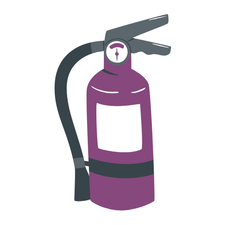- Services
Core Services
Families First
Children and teens belong with their own families whenever possible. KVC works to safely reunify hundreds of families each year by providing parenting skills training, therapy and other support.
Caring People Needed
On any given day, KVC Kansas provides out-of-home care for thousands of children and teens. Relatives, non-related kin like teachers and neighbors, and foster parents are all critical to providing temporary care for these children and teens. See how you can make a difference as a foster parent.
- Get Involved
Children and Families Need You
Through KVC, you can strengthen families, prevent child abuse and neglect, and help create a bright future where every person is safe and connected to a strong family and a healthy community. Please join us today! Learn More
Help Children and Families in Need
- Explore the Best Ways to Get Involved
- Become a Foster Parent
- Explore Careers
- Donate Money or Basic Supplies
- Donate School Supplies
- Donate Holiday Gifts
- Involve Your Faith Community
- Volunteer
- Explore Internship & Practicum Opportunities
- Advocate Resources
- Download Parenting and Mental Health Resources
- Events
- Impact
- Resources
Overview
Our free resources help you stay informed and educated about foster care, child welfare, adoption, mental health and childhood trauma as well as how KVC Kansas is working toward building healthier communities.
- About Us
About KVC Kansas
KVC Kansas is a private, nonprofit organization that serves over 12,000 children, teens and adults each year. Our team of caring professionals provides family strengthening and foster care prevention services, foster care case management, family reunification services, foster family recruitment and support, kinship care, adoption, aftercare, outpatient therapy and more.
We envision a world in which every person is safe and connected to a strong family and a healthy community.
- Blog
DCF Foster Family Home Licensing Regulation Changes

As of June 7th, 2024, the Kansas Department for Children and Families has updated the laws and regulations for foster family home licensing. The information below includes some of the major changes but is not an exhaustive list. Click here for the complete Kansas Laws and Regulations for Licensing Family Foster Homes for Children manual (June 2024).
These changes are from DCF, are applicable statewide and are NOT agency-specific. They are effective June 7, 2024.
Download a handout detailing the major DCF regulation changes here.
![]()
Regulation Changes
Please note that all regulation numbers have changed. Previous regulations were 28-4-XXX. The current regulations are now 30-47-XXX.
30-47-800. Definitions
DCF changed this section quite a bit. There are new definitions, some slightly reworded and others had clarifying pieces added to them.
![]()
New Definitions:
- “Age-, or developmentally appropriate,” when used to describe activities or items, means that the activities or items are generally accepted as suitable for children of the same chronological age or level of maturity, based on the development of cognitive, emotional, physical, and behavioral capacity that is typical for the age or age group.
- “Child placement agency” means a business or service conducted, maintained, or operated by a person engaged in finding homes for children by placing or arranging for the placement of the children for adoption or foster care.
- “First aid supplies” means a combination of cleansing agents, assorted bandages, disposable gloves, sterile pads, adhesive tape, and elastic bandage.
- “Functional literacy” means the ability to read and write at the level necessary to participate effectively in society.
- “Permanency plan” means the comprehensive written plan documenting the goal for each child in foster care.
- “Permittee” means a person who has applied for a license and has been granted a temporary permit to operate by the secretary.
- “Person-centered plan” means the comprehensive written plan of care developed for each individual receiving home- and community-based services.
- “Premises” means the licensed residence including each building and any adjoining grounds.
- “Reasonable and prudent parenting standard” means the standard characterized by careful and sensible parental decisions that maintain the health, safety, and best interests of a child while at the same time encouraging the emotional and developmental growth of the child, which a caregiver shall use when determining whether to allow a child in foster care to participate in extracurricular, enrichment, cultural, and social activities.
- “Relative” means an individual who is related to the child in foster care by blood, marriage, or adoption.
- “Relative waiver” means the exemption of compliance with a specific family foster home regulation or any portion of a specific family foster home regulation for the relative of a child without an alternative provision to meet the regulation that is granted by the secretary to an applicant or a licensee.
- “Social media” means websites and applications that allow users to create and share social networking content.
Also, of note in this section, high risk activity now includes the use of a trampoline. As with any other high-risk activity, permission must be granted from the parent or legal guardian before a child can jump on a trampoline.
Definitions that were removed:
- Age mates
- Caregiver
- Exotic animal
- Informal visitation
- Long-term respite care
- Respite care
- Short-term respite care
- Sleepover
30-47-801. License Required
No changes.
30-47-802. License requirements
DCF added the need to have functional literacy and to be able to communicate with the Department for Children and Families and other partners as a requirement.
30-47-803. Licensing procedure
No changes.
30-47-804. Terms of license; validity of temporary permit or license; renewal license; amendments; exceptions; withdrawal of application or request to close.
DCF added a relative waiver. A relative applicant, permittee or licensee can request a waiver for a specific non-safety regulation.
The relative waiver is different from an exception. An exception is an alternative manner of maintaining compliance, while a waiver is an exemption from compliance. Waivers are requested through DCF licensing and have a duration of time associated with them. DCF can approve waivers if the waiver is in the best interest of the child and does not violate any statutory requirements. A copy of the approval of the relative waiver should be kept on file at the agency and in the relative’s home.
30-47-805. Background Checks
![]()
Individuals residing in the home that are 10 years old and older now require a KBI and CANIS check.
Substitute caregivers (over the age of 14) require a KBI and CANIS check.
Individuals residing in the home 18 years old and older will also need a fingerprint-based background check through the National Crime Information Center (NCIC).
Individuals initiating the licensing process that have lived outside Kansas within the last five years are still required to participate in out-of-state background checks.
30-47-806. Training
![]()
Pre-licensing training
All new foster homes are required to participate in an instructor-led first aid and CPR course. Both require the use of a post-skills test.
The other pre-licensing training courses remain the same.
In-service/yearly training
Licensed homes are still required to participate in a minimum of eight clock hours of training for each licensing year. At least two hours must include instruction between an instructor and participant. DCF added training topics, and the goal is to develop competency in two or more of the following areas:
- Advocacy
- Attachment issues and disorders
- Child development
- Crisis management, including intervention techniques for problem or conflict resolution, diffusion of anger, and de-escalation methods
- Communicating and connections with birth families
 Discipline and behavior management techniques
Discipline and behavior management techniques- Human sexuality, including gender identification
- Human trafficking and exploitation
- Indicators of gang involvement
- Indicators of self-harming behaviors or suicidal tendencies and knowledge of appropriate intervention methods
- Medical and mental health disorders, treatment modalities, and pharmacology
- Principles of trauma-informed care and trauma specific interventions
- Reasonable and prudent parent standard
- Regulations governing family foster homes
- Report writing and documentation methods
- Resources and services available to youth transitioning to independent living
Homes must maintain an active CPR certification. For homes currently licensed and who do not have an active CPR certification, they must participate in an instructor-led CPR training with a post-skills test as a part of their annual training.
Agencies can require additional or alternative training. KVC continues to require additional training hours for homes that provide care to youth with a higher level of care (LOC).
30-47-807. Reporting requirements for infectious or contagious disease; positive tuberculin test; critical incidents; abuse and neglect
![]() DCF made changes to the reporting of critical incidents, however the way these are reported remains the same. The change is to what events get reported to which agencies.
DCF made changes to the reporting of critical incidents, however the way these are reported remains the same. The change is to what events get reported to which agencies.
Licensed homes must report the following incidents immediately to DCF, the child’s foster care case management agency and the foster family’s sponsoring child placing agency:
- Any damage to the dwelling or property that affects the structure of the dwelling or the safety of the child in foster care
- Injury of a child in foster care that requires medical treatment by a licensed medical provider
- The death or a child or any other resident of the family foster home
The following incidents must be reported to the child’s foster care case management agency and the foster family’s child placing agency:
- A vehicle accident involving any child in foster care
- A missing or runaway child in foster care
- The arrest of a child in foster care
- Any incident involving the presence of law enforcement
- All complaint investigations by DCF
30-47-808. Recordkeeping requirements; confidentiality
DCF removed the requirement to keep approval for information visitation and approval to be a respite provider from the regulation.
Record keeping pertaining to children in foster care has been moved to a different regulation (30-47-809).
Each licensee shall keep documentation of accident and liability insurance for each vehicle used to transport children in foster care.
30-47-809. Basic record information; other required record information; departure requirements
![]() Previously, the following items were required to be provided to the foster home within 14 days of placement. The new regulations require they be provided before or at the time of placement:
Previously, the following items were required to be provided to the foster home within 14 days of placement. The new regulations require they be provided before or at the time of placement:
- Copy of the court order or other document placing the child in foster care
- A designation of race or cultural heritage of the child, including tribal affiliation (if any)
- The name, address, and telephone number of the child’s parents or legal guardian
- The placement history
- A description of positive attributes and characteristics of the child as well as related information from the child, the child’s family (including siblings)
- The name, address, telephone number and, if applicable, the email address of the child placing agent who is responsible for supervising the child’s placement
- A copy of the current case plan, permanency plan, or person-centered plan
- If applicable, documentation of each use of physical restraint on a physical restraint report form
If you are missing any of the required documentation, you must request it from your worker or the child’s worker.
There were no changes made to the departure requirements.
30-47-810. Case plan
The only addition to this regulation is that licensed homes shall facilitate the child’s timely enrollment and school attendance in a public school district, private school, or any other place of instruction in accordance with the child’s IEP, case plan or person-centered plan.
If there are complications that arise when enrolling a youth in care, it’s important to stay in communication with the child’s worker.
30-47-811. Caregiver qualifications; supervision
DCF made changes regarding substitute care and self-care.
Substitute care: When a child in foster care is placed in substitute care during the absence of a foster parent, prior approval of the substitute care shall be given by the sponsoring child placing agency. Prior approval is not needed for short periods of time, including a portion of one day.
If the foster parent is absent for more than 10 hours or for any period between midnight and six a.m., the substitute caregiver shall be at least 21 years of age and at least three years older than the oldest child in foster care.
![]() Self-care: Children 12 and older are able to stay at home, without adult supervision, between the hours of six a.m. and midnight, with an approved, written, self-care plan. That plan must follow these requirements:
Self-care: Children 12 and older are able to stay at home, without adult supervision, between the hours of six a.m. and midnight, with an approved, written, self-care plan. That plan must follow these requirements:
- The potential for self-care is identified and written approval is included in the child’s case plan
- Foster homes shall use reasonable and prudent parent standards when establishing the self-care plan. The number of children in the home, the behavior, emotional stability and maturity level of the children in the home and any neighborhood safety issues shall be considered.
- The self-care plan needs to include the frequency and duration of authorized self-care for each child.
- The plan shall be approved by the child’s worker and the home’s worker.
- Each child in self-care needs to have immediate access to an operable communication device that ensures the ability to contact 911 and emergency contacts.
27-4-812: Respite Care
Removed from regulations.
30-47-813. Reasonable and prudent parent standard
![]() While the reasonable and prudent parenting standard has been in place for many years, this is a new regulation dedicated specifically to this standard. Many of the items in 28-4-813 (child growth and development) and 28-4-814 (Family life) were incorporated into this regulation.
While the reasonable and prudent parenting standard has been in place for many years, this is a new regulation dedicated specifically to this standard. Many of the items in 28-4-813 (child growth and development) and 28-4-814 (Family life) were incorporated into this regulation.
Foster parents shall provide for the growth and development of children in their care utilizing the reasonable and prudent parent standard.
Children must be treated with dignity and respect, have access to age or developmentally appropriate services, control of personal resources, privacy.
Children’s cultural and religious needs must be met.
Children should have the ability to participate in family activities, have access to rest, sleep, nutritious meals/snacks, and essential and special items.
High risk activities still require written permission from the parent or legal guardian. Jumping on trampolines is now allowed, provided permission has been obtained on the high-risk activity form.
30-47-815. Behavior Management practices: prohibited punishment; physical restraint; notification requirements
No changes.
![]()
30-47-816. Transportation
DCF no longer required first aid kits in vehicles.
First aid supplies should be in the foster home.
Foster parents shall apply reasonable and prudent parent standards when determining who may transport a child in foster care.
30-47-817. Nutrition; food handling and storage
DCF didn’t add anything to this regulation.
Ensuring an adequate amount of food was moved to the reasonable and prudent parenting regulation.
30-47-818. Storage and administration of medication
The use of essential oils now requires the approval of a licensed medical provider (along with items like herbal supplements, folk remedies and natural medicines).
Medications still must be kept in original containers and remain locked when not in use.
Documentation of medication (prescription or over the counter) administration is still required.
30-47-819. Health Care
Substitute caregivers are now included in this regulation.
 Foster parents and substitute caregivers providing care for infants must be current on the pertussis vaccination.
Foster parents and substitute caregivers providing care for infants must be current on the pertussis vaccination.
Each caregiver caring for infants and children with special medical needs must be current on the annual influenza vaccination consistent with the recommendations of the CDC.
Exemptions for this requirement are allowed with one of the following:
- A written certification from a physician with a current license to practice in Kansas that the physical condition of the individual is such that the immunization would endanger the individual’s life or health or
- A written statement from the individual that the individual is an adherent of a religious denomination whose teachings are opposed to immunizations.
![]() If a foster parent experiences a significant change in their physical, mental, or emotional health, including indications of substance abuse, an assessment of current health status may be requested by DCF or the sponsoring CPA. This assessment is at the foster parent’s expense and must be done by a licensed or certified practitioner in Kansas to diagnose and treat the condition that is the basis for the assessment or evaluation. Foster parents must sign a release of information for the assessment to be shared to DCF and/or the sponsoring CPA.
If a foster parent experiences a significant change in their physical, mental, or emotional health, including indications of substance abuse, an assessment of current health status may be requested by DCF or the sponsoring CPA. This assessment is at the foster parent’s expense and must be done by a licensed or certified practitioner in Kansas to diagnose and treat the condition that is the basis for the assessment or evaluation. Foster parents must sign a release of information for the assessment to be shared to DCF and/or the sponsoring CPA.
Dental evaluations are now required for foster children aged 12 months and older (this is a change from 3 years and older).
30-47-820. General environmental requirements
Homes with private water supply will still need to have their water supply tested to ensure it is safe for human consumption. Commercially bottled drinking water will be issued for children in foster care until laboratory tests confirm the water is safe for human consumption. (This was previously for children under 12 months of age.)
![]() Each interior and exterior stairway with three (previously 2) or more stairs and a landing will have a handrail.
Each interior and exterior stairway with three (previously 2) or more stairs and a landing will have a handrail.
Each stairway and landing need to be guarded on each side if there is a drop-off of more than 30 inches from the stairs or landing to the floor or ground. (Previously 21 inches.)
Homes that have children in foster care that are two years old or younger will have baby gates for stairways that have two or more stairs and a landing. At the top of the stairs will have a baby gate that is securely attached. Accordion gates shall be prohibited throughout the premises.
All electrical outlets in homes caring for children less than 6 years old must be covered or tamper-resistant (previously only able to be covered).
Water temperature must be maintained to ensure the health and safety of children in foster care.
 One operable fire extinguisher is now required for each home.
One operable fire extinguisher is now required for each home.
First aid supplies must be readily accessible.
The foot candle requirement was removed, though sufficient lighting for each room is still required.
All household cleaning supplies, chemicals, and hazardous materials that have warning labels advising the consumer to keep out of the reach of children shall be kept in locked storage or stored out of reach of children less than six years of age. (Previously 10 years of age).
![]()
Smoking products, including nicotine-based fluids, electronic or lighted cigarettes and vaporizers, must be stored out of reach of all children. (No longer has an age limit.)
Annual fireplace and chimney checks are no longer required.
DCF removed the need for floors to be covered, painted or sealed in structural and furnishing requirements.
30-47-821. Sleeping arrangements
![]() At night, each caregiver should sleep within hearing distance or use a non-recording monitoring device for each child in foster care under the age of six years and each child that has special developmental or medical needs requiring close supervision as documented by the child’s medical or mental health provider.
At night, each caregiver should sleep within hearing distance or use a non-recording monitoring device for each child in foster care under the age of six years and each child that has special developmental or medical needs requiring close supervision as documented by the child’s medical or mental health provider.
Room sharing:
- Each child in foster care six years of age and older shall share the room only with children of the same sex.
-
Instead of age-mates, caregivers should use reasonable and prudent parent standards when determining room sharing arrangements while also considering each child’s age, maturity level, behavior disorders, developmental delays, anger management and thrill-seeking behaviors.
-
Children in foster care less than 18 months old can sleep in the foster parents’ bedroom (previously 12 months).
- A child who is known to have committed an unlawful sexual act or who is a sexual abuse victim should not share a room unless both of the following are met:
- The potential roommate arrangements are assessed by the child-placing agent, the home’s sponsoring child-placement agency and the licensee.
- Based on the assessment, a determination is made by the CPA that it is unlikely that further sexual abuse will result from the child sharing a room.
Any child in foster care who is less than 12 months of age shall be put to sleep on the child’s back unless ordered otherwise by the child’s physician.
![]()
30-47-822. Safety procedures; emergency plans; drills
The home’s address must be visible from the street.
Tornado drills now must be conducted monthly (instead of just April-September).
30-47-823. Outside premises
Trampolines are no longer prohibited.
However, they must be anchored. (Similar to swings and other climbing equipment.) As with any other high-risk activity, permission must be granted from the parent or legal guardian before a child can jump on a trampoline.
DCF removed the requirement for outdoor safety plans.
30-47-824. Swimming pools, wading pools, and hot tubs; off-premises swimming and wading activities
![]() Swimming or wading pools with less than 24 inches of water or a hot tub on the premises shall be constructed, maintained and used to safeguard the lives and health of children in foster care.
Swimming or wading pools with less than 24 inches of water or a hot tub on the premises shall be constructed, maintained and used to safeguard the lives and health of children in foster care.
Above ground pools with a deck or berm that provides a ground-level entry on any side shall be treated as an in-ground pool. They must meet the following requirements:
Swimming pools shall have a barrier on all sides at least four feet high. (This was previously 5 feet high.)
Swimming pools shall have their methods of access through the barrier equipped with a safety device, including a bolt lock.
Each licensee shall ensure that that no child in foster care less than six years of age uses a hot tub. (This was previously less than four years of age.) DCF removed specific requirements for the PH level of hot tubs.
![]()
30-47-825. Animals
Animals must be in good health, with no evidence of disease. They should be friendly and pose no threat to the health, safety, and wellbeing of children. A record of current rabies vaccinations must be kept on file.